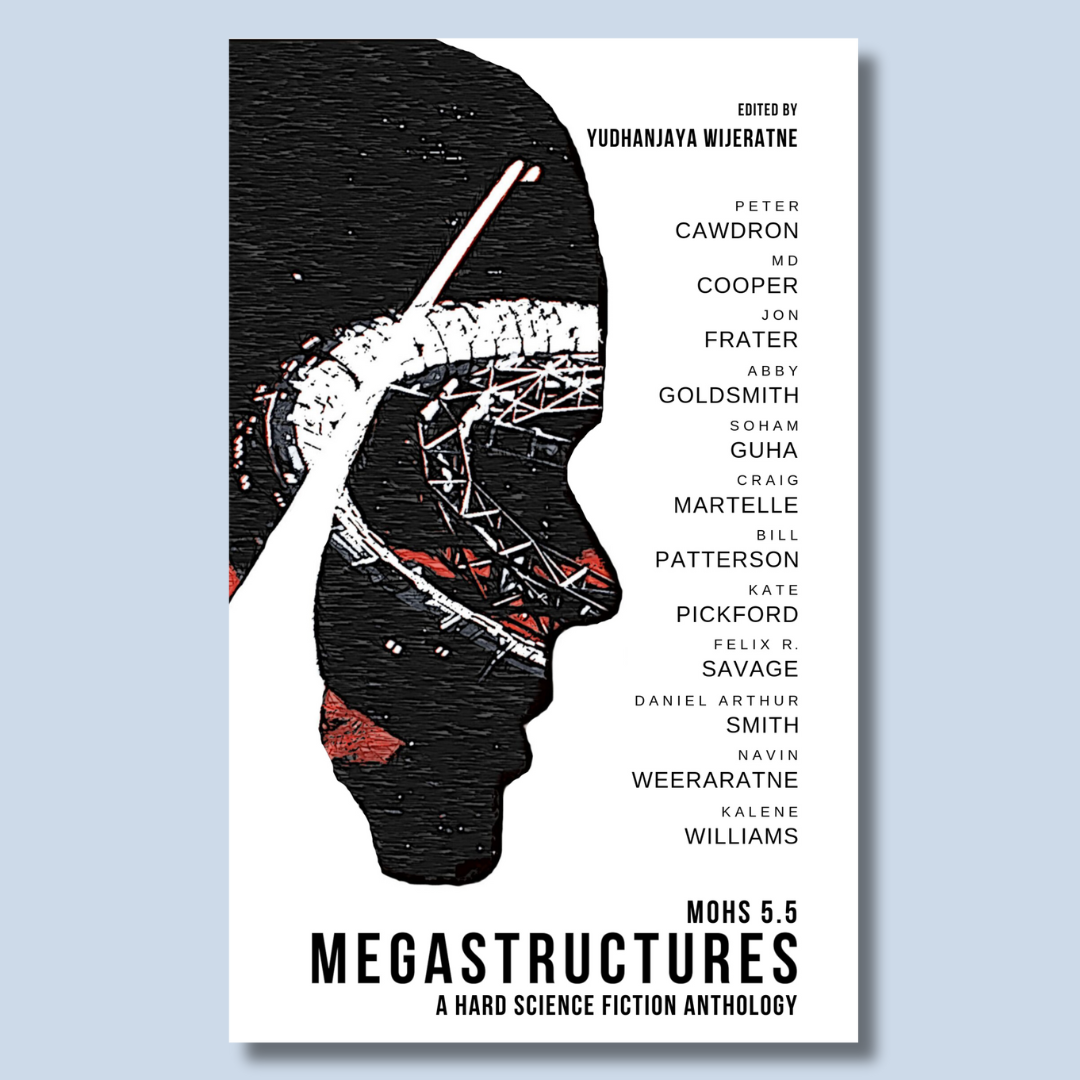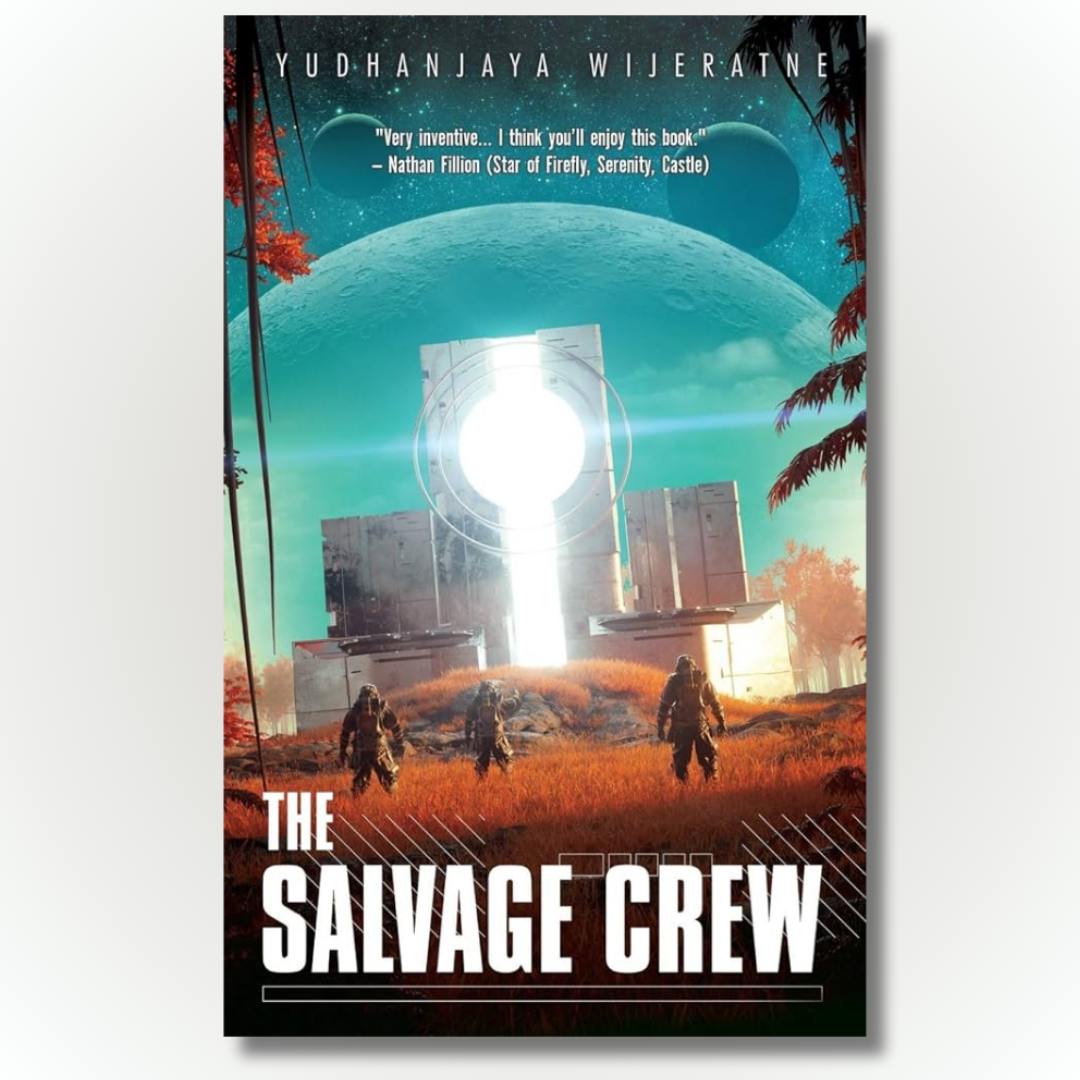
Mohs 5.5 Megastructures
A curated collection of global science fiction stories centered around megastructures and massive feats of engineering.
AI x language games x space colonization x poetry x Buddhism.
“Yudhanjaya Wijeratne’s ingeniously crafted The Salvage Crew starts with a comforting science-fictional familiarity, before using its A.I.-co-authored idiosyncrasies to hurtle headlong into the gravity well of its considerable ambition. A novel of meteoric energy, flaring brighter and brighter as it falls further into its world.” (Indrapamit Das, Lambda Award-winning author of The Devourers)
Blurb: An AI overseer and a human crew arrive on a distant planet to salvage an ancient UN starship. The overseer is unhappy. The crew, well, they’re certainly no A-team. Not even a C-team on the best of days. And worse? Urmagon Beta, the planet, is at the ass-end of nowhere. Everybody expects this to be a long, ugly, and thankless job. Then it all goes disastrously wrong. What they thought was an uninhabited backwater turns out to be anything but empty. Megafauna roam the land, a rival crew with some terrifyingly high-powered gear haunts the dig site, and a secret that will change humanity forever is waiting in the darkness.
At its heart, the Salvage Crew is dark, snarky space adventure with a stirring of Wittgenstein and Buddhism in the broth. It features a depressed, C-team crew, a bored-as-fuck AI poet, an actual alien AI, first contact, giant furry sloths, and interstellar capitalism in a gig economy. It’s also a love letter to Rimworld and Dwarf Fortress. The audiobook was narrated by Nathan Fillion.
It became an Audible and Washington Post bestseller, has been recognized by Polygon as one of the best SFF books of 2020, been writted about in detail at Himal SouthAsian, Strange Horizons, the Hindu, Religion News and elsewhere. I’ve since explored possible AI+human directions on Slate, Wired, and for Google Research.
“…perhaps one of the most riotously intertextual genre novels today: Wijeratne is in conversation not merely with the themes of global SF, but with its practitioners as well.” (Gautam Bhatia, Himal SouthAsian)
“Wijeratne spins together a fabulous space adventure that takes an unexpected turn into the philosophical as his characters are forced to confront what it means to be human, and what intelligence beyond Earth might look like.” (Andrew Liptak, Polygon.com)
The Salvage Crew was also a technical step forward for me in exploring my human+AI thesis. It’s a book largely about intelligence both artificial and alien, written from the perspective of a machine poet.
In keeping with the procedural generation scene that I drew inspiration from, the galaxy and the planet were generated by bits of code; and so were the characters and quite a few of the events, including weather. A portion of said galaxy code is available here on this Github repo.
The voice of the machine poet was an OpenAI GPT-117M model that I retrained on translations of Tang dynasty poetry by the likes of Du Fu and Li Bai, generating thousands of poems that I sifted through, looking for both utility for the story and that ever-so-slight disconnect of style and translation. In this I functioned as a sort of rudimentary cyborg, a spider at the heart of a web that would constantly bring me strange things to weave into the story I wanted to tell. I’ve documented the process and my experience in the foreword to the Salvage Crew.
“A classic sci-fi adventure wrapped around a deeply philosophical core. With skillful plotting, interesting details, and a motley crew of humans and A.I., it’s a story that embraces its meta-origins…with an ending worth waiting for.” (S.B. Divya, Hugo and Nebula Award-nominated author of Runtime and Machinehood)
“With animation and wry humor, Fillion introduces listeners to OC, an artificially intelligent yet poetic overseer…with tenderness and sorrow [he] conveys OC’s dawning realization that their mission has turned into a nightmare. Fillion’s talents are undeniable….” (Audiofile Magazine)
The seeds for the Salvage Crew are:
